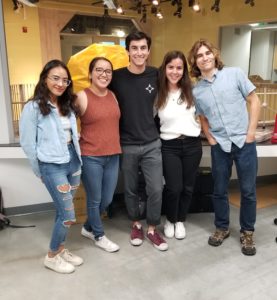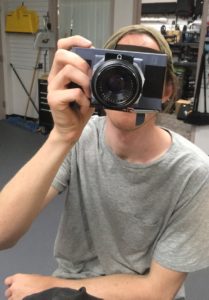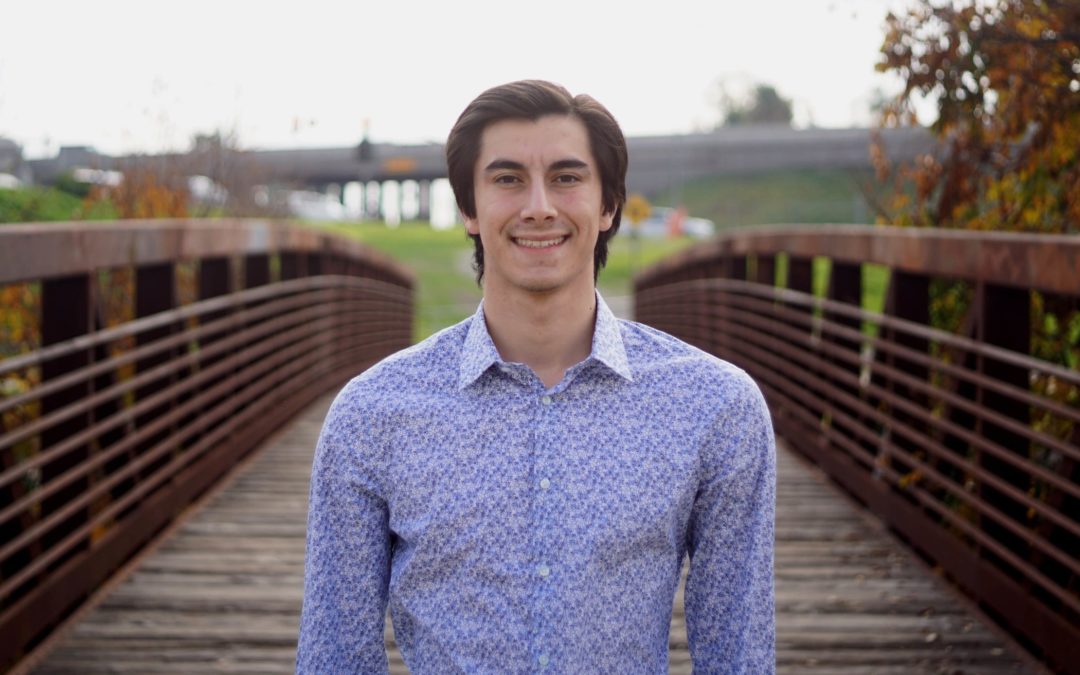By Jade Kim, Student Success Specialist at Base 11.
As many students will come to find out during their academic careers, what they do beyond the classroom can oftentimes be just as — if not more — important than what they do inside the classroom. Base 11 Victory Circle student Danny Yos knew that if he wanted the best possible chance to transfer to a four-year university to pursue a degree in STEM, he would have to take his knowledge, talent and curiosity and apply it to his own endeavors. By building a camera using the Base 11 Innovation Center in Orange County, California, and participating in our Aerospace Mentorship Program at Caltech, Danny developed a robust portfolio that helped him get accepted to California State University, Long Beach. Read on to find out more about January’s Victory Circle Student of the Month.
What is your major?
Aerospace engineering.
What inspired you to apply for the Base 11 Caltech program?
Jade actually came to OCC and told us about Base 11. This includes the makerspace they have at the Cove at UCI as well as all of their fellowship programs that they offer with local universities. After enjoying my time at their makerspace during my winter break, I decided to apply for the Base 11 Caltech program. I had been a part of a couple of research symposiums in the past, but wanted to try research at a state-of-the-art facility. Promptly after my time at Caltech, I switched to aerospace.

Danny (center) with his Base 11 Summer Fellowship cohort at Caltech.
Can you give us a brief summary/overview of what your project was at Caltech?
Rotorcrafts — including drones and helicopters — are prone to be less efficient in descent. There is a great loss of thrust, meaning that it is consuming way more power than is needed. We decided to look at the drone’s rotor to see if geometry could help influence the flow surrounding it. This resulted in designing two specific geometries: (1) shrouds (which surrounded the rotor blades) and (2) various blade props. The shrouds did little to help thrust, but they actually were less efficient — they consumed more power than before. The blades were able to improve the thrust by a considerable margin, and we were able to characterize which blade properties were the most effective.
What about in the Base 11 Innovation Center?

Danny and the camera he built in the Innovation Center.
I first started to learn what Base 11 was all about through the Innovation Center. The space has pretty much everything you can ask for: a small CNC, 3D printers, a soldering station, and a lot of CAD software (like Solidworks). OCC offers a research symposium for students for all majors. It is primarily student led, but each can pick a mentor to help guide them through the process. I actually chose to have two mentors, because my project required a little bit of engineering and physics: Professors Esposito and Guerra. The goal was to create a reliable, fully mechanical camera, using medium-format film over 35mm — enhancing the quality of photos substantially. Medium-format brings about new challenges: specifically the focusing distance — making size and portability an issue. I modeled my camera around one specific lens (the Koni-Omega 90mm f/3.5). I have a lot of knowledge about film cameras, so I designed the camera based on my favorite trends. I was actually able to advance the film, and take a few pictures with it — the night before the symposium too! It was a crazy experience, and without having the Innovation Center during the winter break, I don’t think I could have finished the camera in time!
In what ways has the internship helped you towards your goals?
As a community college student, my main focus was on transferring to a 4-year university, and I had not thought of much else past that. Caltech is the premier research university in the US, and there is an obvious emphasis on higher education and research. I was working with my grad student mentor, Marcel Veismann, as well as other fellows that were mostly at the end of their undergraduate journey, looking to apply to universities for grad school. Basically, there were many students on varying levels of higher education, and this was my first glimpse at that. I started to make a plan rounding out the end of my time as an undergrad, finding what it takes to make me a stand-out candidate for future job interviews. I think now I have a good idea of what road I need to take to reach my goals. In addition, I learned a lot on the spot, and the experience I gained was second to none.
What are your upcoming plans?
I am just starting at CSULB this spring semester. They have a pretty amazing rocketry program, and they (BLT) actually compete for the Base 11 Space Challenge. I am going to do my best to join clubs and programs such as these during my time at Long Beach. Since the summer program ended, I was able to stay on with my mentor, with the goal of writing a paper. We were able to run some more experiments to get the necessary data to solidify our findings. With the Gharib research group, I went to the American Physical Society (APS) Fluids conference in Seattle, Washington this past November. It was an amazing experience; I learned a lot from the leaders in the field. We are now actually writing the paper, and are hoping to get most of it done before I start at Long Beach.
What are your dreams for your future career?
I would like to work at an aerospace company (Boeing, Raytheon, Space X, Northrop Grumman, Lockheed Martin, etc.) or for NASA (like JPL). I still have a lot to think about, but at end of it all, I would like to contribute to something that has a larger meaning (such as the Mars rover — which is looking for signs of life outside the earth).
What advice do you have for students looking to pursue the field of aerospace/STEM?
The first step should always be to talk to your professors and get to know them. My professors have helped me with so much. They are the experts in their field, and they are always on your side – especially if you are in community college. Also, try to participate in as much stuff at school that also applies to your field. I ended up participating at this research symposium with two different mentors (two of my professors). They got to see what I could do outside of class, and we got to establish a connection. It is not always about school, but that does not mean it can’t contribute to your career. Getting ready for the symposium is what made me become qualified to apply for the Caltech internship, and I see that as a major turning point in my academic career. The key is there is always something can help you out. Just participate and be ready for anything.
To learn more about Base 11’s fellowship and internship programs, click here.

